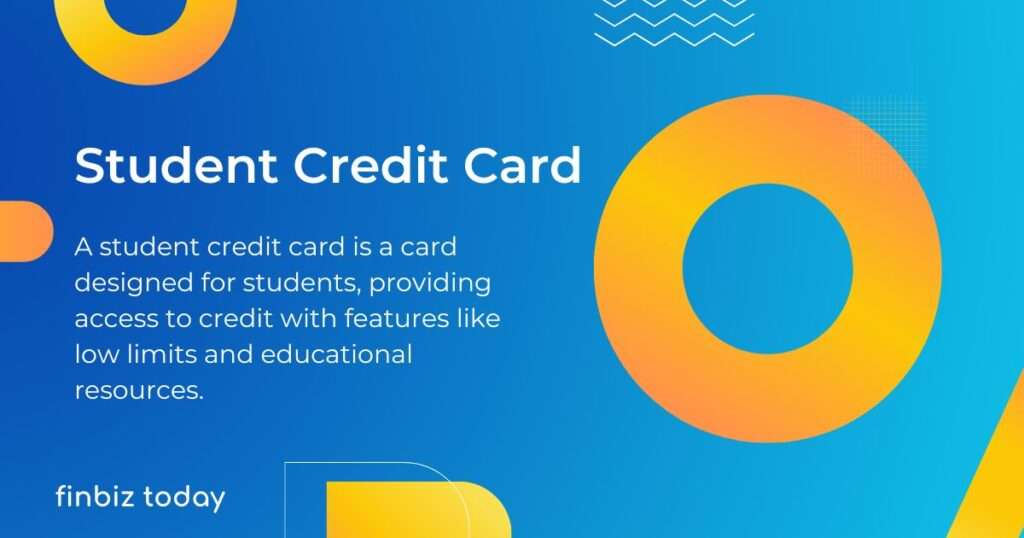In today’s financial landscape, student credit cards play a crucial role in helping young adults build their credit history and manage their finances responsibly. Let’s delve into the world of student credit cards, exploring what they are, how they work, and the advantages and disadvantages they offer.

What is a Student Credit Card?
A student credit card is tailored to meet the needs of college or university students, offering specific benefits and features aimed at this demographic. It offers a way for students to build credit history and learn responsible financial habits from an early age.
How does a Student Credit Card Work?
Student credit cards work similarly to regular credit cards. Cardholders can make purchases with their card, up to the credit limit assigned by the card issuer. They then have a grace period to pay off the balance without incurring interest. However, if the balance is not paid in full by the due date, interest will accrue on the remaining balance.
How much Income do you need for a Student Credit Card?
The income requirements for student credit cards vary depending on the card issuer and the specific card. Some issuers may require proof of income to ensure that applicants have the means to repay any charges made on the card.
What sets apart a Student Credit Card from a Regular Credit Card?
The primary difference between student credit cards and regular credit cards lies in the target demographic. Student credit cards are specifically designed for students who may have limited credit history or income. They often have lower credit limits and more relaxed eligibility criteria compared to regular credit cards.
Is it Good to have a Credit Card as a Student?
Having a credit card as a student can be beneficial for building credit history, which is essential for future financial endeavors such as renting an apartment or applying for a car loan. However, it’s crucial to use the card responsibly and avoid accumulating debt that cannot be repaid.
Is it Possible for a Student to obtain a Credit Card?
Yes, students can typically qualify for student credit cards as long as they meet the issuer’s eligibility criteria. This may include being enrolled in a college or university program and having a source of income.
Types of Student Credit Cards
There are various types of student credit cards available, each with its own features and benefits. Some cards offer rewards such as cash back or travel miles, while others may have lower interest rates or no annual fees.
Interest Rate of Student Credit Card
The interest rate, or APR, on a student credit card can vary depending on factors such as the card issuer, the applicant’s credit history, and the prevailing market conditions. It’s essential to understand the terms of the card agreement, including the APR and any potential fees associated with the card.
Student Credit Card Scheme
Student credit card schemes are programs offered by financial institutions specifically tailored to the needs of students. These schemes may include features such as lower credit limits, educational resources on financial literacy, and rewards geared towards student spending habits.
Do student Credit Cards have Monthly Payments?
Yes, student credit cards typically require cardholders to make minimum monthly payments on their outstanding balances. However, it’s advisable to pay more than the minimum amount whenever possible to avoid accruing excessive interest charges and to pay off the balance faster.
Benefits of Student Credit Card
The benefits of student credit cards include building credit history, learning financial responsibility, and gaining access to financial flexibility. Responsible usage of a student credit card can set the foundation for sound financial habits in the future.
How to get a Student Credit Card with no Income?
If you have no income, you may still be able to qualify for a student credit card by providing proof of enrollment in a college or university program. Some issuers may also accept a co-signer with sufficient income as a guarantor for the card.
Advantages and Disadvantages of Student Credit Card
Advantages:
- Building credit history
- Availability of funds for unforeseen emergencies or sudden expenses
- Opportunity to earn rewards or cash back on purchases
Disadvantages:
- Temptation to overspend and accumulate debt
- Potential for high-interest charges if balances are not paid in full
- Risk of damaging credit score with late or missed payments
Conclusion
In conclusion, student credit cards can be valuable financial tools for students looking to build credit history and learn responsible financial habits. By understanding how student credit cards work, comparing different types of cards, and following best practices for responsible credit card usage, students can make the most of their financial resources while avoiding common pitfalls. With careful planning and discipline, student credit cards can pave the way to a brighter financial future.

